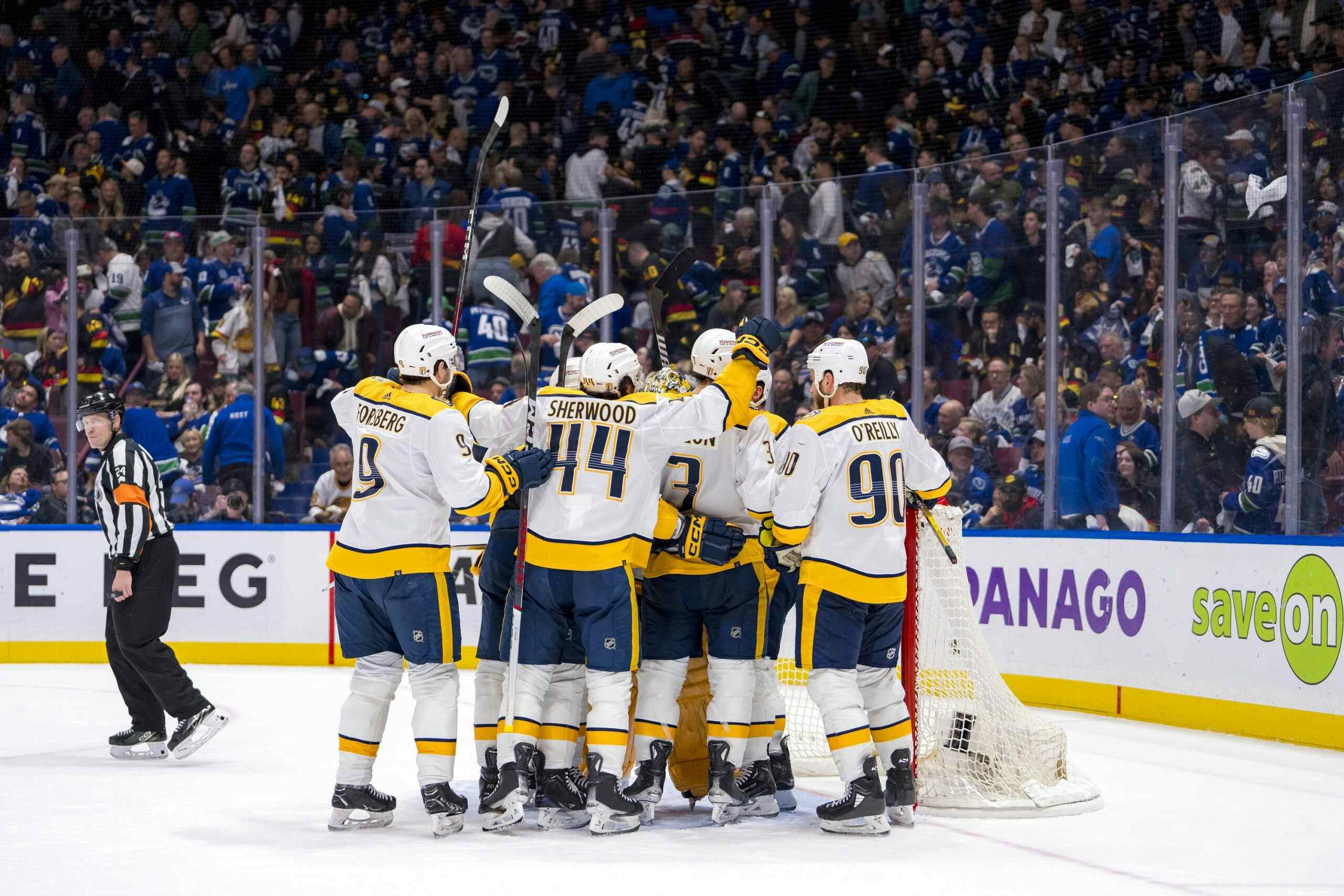Tom Renney, Todd McLellan and Stability

It was a good day when the Edmonton Oilers hired Todd McLellan to be the team’s head coach. It isn’t just that McLellan is a good head coach, though he is. It’s also because he’s an established coach. Unlike most of his predecessors, he’s not likely to be fired if the team strings two bad seasons together.
He has the kind of staying power his predecessors lacked.
Expansion Teams
Recent NHL expansion teams do much to drive the point home. Of the league’s four most recent expansions, two hired a strong coach out of the gate and retained him for at least five seasons. Two others would fire their coach relatively early in his tenure. The two teams who retained their coach have emerged as healthy franchises, while the other two have both been failures:
- Nashville: Barry Trotz, coached 15 full seasons (franchise has won 21 playoff games)
- Atlanta: Curt Fraser, fired midway through his fourth season (franchise won zero playoff games)
- Columbus: Dave King, fired midway through his third season (franchise has won two playoff games)
- Minnesota: Jacques Lemaire, coached eight full seasons (franchise has won 22 playoff games)
There’s certainly room to argue cause and effect here. It’s as fair to say that the coaches were retained because their teams succeeded as it is to argue that the teams succeeded because the coaches were retained. The former is certainly true, but I think the latter has some merit, too.
The key point for me is the difference between Columbus and Nashville.
The Thrashers tried to be patient with Fraser, but his best season was a 0.366 points percentage performance in Year 2 and the club took step backwards each of the next two seasons; he clearly had to go. The Wild went to the third round of the playoffs in their third year of existence and it was a no-brainer to hang on to Lemaire.
In Nashville, general manager David Poile gave Trotz—then an up-and-coming AHL coach—his first major-league job. He knew Trotz intimately, as his last job had been as general manager in Washington and Trotz had coached the Capitals’ farm club. So when the Predators missed the playoffs for five straight seasons, and especially when the club took a step backward in Year 4, he didn’t waver from his commitment to a man he knew was a good coach. The Predators were rewarded for that faith.
In Columbus, general manager Doug MacLean went with a veteran coach. Dave King was well respected from his time running the Canadian National Team, and had coached Calgary into the playoffs in three straight years but was let go after failing to get past the first round. After two seasons assisting Alain Vigneault in Montreal, King was brought in to oversee the Blue Jackets. They had a good first season, took a step back in Year 2 and King was fired in Year 3 despite the team gaining ground. No coach since has lasted for even four full seasons.
With expansion teams and rebuilds alike, roster turnover is a simple reality. A lot of the players taking shifts in any given year aren’t going to be around when the team turns the corner. That makes it important to build in certainty and stability wherever possible, with the coach being the obvious place to start. Find a good coach and then keep him long enough to build a team.
That brings us to the Oilers, who over the years have opted for a different approach.
The Rebuild Oilers

No coach of the rebuild era Oilers has lasted more than two seasons.
- Pat Quinn: 2009-10 (fired after one season)
- Tom Renney: 2010-12 (fired after two seasons)
- Ralph Krueger: 2012-13 (fired after an abbreviated lockout season)
- Dallas Eakins: 2013-15 (fired midway through his second season)
- Craig MacTavish: 2014-15 (interim coach)
- Todd Nelson: 2014-15 (not retained after a half season as interim coach)
- Todd McLellan: 2015-16 (in his first season with the team)
Quinn’s firing was inevitable and deserved. Then-general manager Steve Tambellini miscalculated on his first head coach and that was a key factor in Edmonton’s implosion in 2009-10.
There are those who still pine for Krueger, but then-general manager Craig MacTavish didn’t have the luxury of waiting to see how things played out and clearly lacked the conviction necessary in the man to keep him on through thick and thin. He was sold on Eakins, but the rookie coach’s first year went extremely poorly and when the goaltending imploded in the second year it cost him and ultimately MacTavish, too. Nelson had long history with the organization and might have been a good bet, but lacked long history with new general manager Peter Chiarelli, who needed a coach he had boundless confidence in.
We can see how instability in the front office played into the poor longevity of coaches. MacTavish didn’t trust Tambellini’s man and my guess is that he lacked the internal clout necessary to hang on to his guy. When Chiarelli was hired, change was inevitable.
The place to stop the madness was in the summer of 2012, when Renney was fired. Tambellini failed to articulate the reason why Renney was fired beyond the team’s record, despite the fact that the Oilers had won seven more games in 2011-12 than in the previous year. Renney was an established coach with a history both as a bench boss and as an executive on the player development side; he’s precisely the kind of coach a rebuilding or expansion team might identify to build a team from the ground up.
Renney has since commented that he lost his job because he refused to give more minutes to injured players; I don’t know if that’s true or not but as Copper & Blue argued at the time it would fit into the depressing pattern of the Tambellini Oilers with regard to injured players.

All that, though, is locked in the firmly unchangeable past, and there’s good news now. NHL teams don’t take flyers on coaches like McLellan; he was brought in to manage Edmonton’s bench over the long term. He’s not a perfect coach; like any other he will (and has) made mistakes. But in the grand scheme of things those little mistakes matter much, much less than ensuring that the voice behind the bench is competent and unchanging.
McLellan brings stability to a team in dire need of it.
Recent articles from Jonathan Willis





